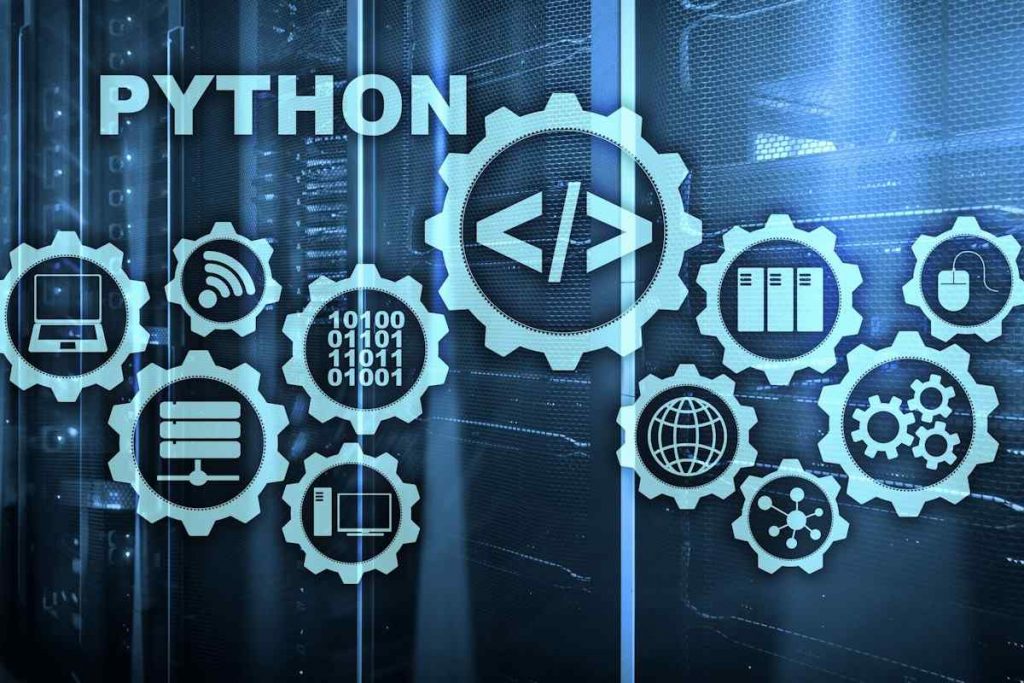
In the ever-evolving world of technology, Python and the Internet of Things (IoT) have emerged as transformative forces, facilitating innovative advancements and enhancing operational efficiency in businesses. Python, a high-level programming language, is revered for its simplicity and readability, making it an ideal choice for IoT applications. On the other hand, IoT, a network of interconnected devices, allows for seamless data transfer and communication, opening up a world of possibilities for businesses. This blog aims to elucidate the power of Python in IoT, explore its real-world applications, and discuss how this potent combination is revolutionizing business operations.
Revolutionizing Business Operations
The combination of Python and Internet of Things has revolutionized business operations by enabling organizations to make data-driven decisions quickly and efficiently. With the ability to collect, analyze, and process vast amounts of data in real-time, businesses can gain meaningful insights into their operations and make informed decisions. Python’s versatility allows it to be used for various IoT applications, from data analysis and visualization to machine learning and artificial intelligence (AI). This flexibility has made it an integral tool in transforming business processes across different sectors.
The Impact of Python and IoT on Different Industries
The fusion of Python and IoT has had a significant impact on various industries, including manufacturing, healthcare, agriculture, transportation, and retail. In manufacturing, IoT sensors can collect data from machines in real-time, while Python’s data analysis capabilities enable predictive maintenance to reduce downtime. In healthcare, remote patient monitoring devices utilizing IoT technology can transmit vital signs to healthcare providers, and Python’s machine learning algorithms can analyze this data for early detection of health issues. In agriculture, IoT sensors can measure soil moisture and nutrient levels, while Python algorithms can analyze the data to optimize crop production. Similarly, in transportation, IoT devices can track shipping containers’ location and condition, while Python’s AI capabilities can develop more efficient delivery routes.
The Power of Python in IoT
Python’s popularity in IoT stems from its simplicity and flexibility. Its syntax is intuitive and easy to understand, making it accessible for beginners and experienced programmers alike. Additionally, Python’s extensive library and active community support make it an ideal choice for IoT applications. As IoT devices typically have limited computational capabilities, Python’s lightweight nature and ease of execution further enhance its appeal. Moreover, the ability to integrate Python with other programming languages allows for seamless communication between interconnected devices in an IoT network.
Real-world Applications of Python in IoT
In various industries, the combination of Python and IoT has led to the creation of groundbreaking solutions. Here are a few notable examples:
- Smart Homes: Python is extensively used in the development of smart home applications. IoT devices, like smart thermostats, lighting systems, and security devices, often utilize Python for its ability to handle multiple tasks and integrate with various hardware.
- Healthcare: In the healthcare industry, Python and IoT are used for remote monitoring systems, wearable health devices, and patient data analysis. Devices can alert medical professionals to changes in a patient’s condition, potentially saving lives.
- Agriculture: Python and IoT are revolutionizing the agriculture sector through precision farming. IoT devices can monitor weather conditions, soil quality, and crop growth, with Python being used to analyze and interpret the collected data.
- Manufacturing: In the manufacturing sector, Python and IoT come together in the form of predictive maintenance. IoT devices can monitor machinery and alert operators to any potential issues, with Python used for data analysis and prediction.
- Retail: In the retail industry, Python and IoT are being utilized for inventory management, customer experience enhancement, and security. IoT devices can track inventory and customer behavior, while Python is used to analyze this data and generate insights.
- Transportation: Python and IoT are driving advancements in the transportation sector, with self-driving cars being a prime example. IoT sensors collect data from vehicles, roads, and traffic signals, which is then processed by Python algorithms to enable autonomous driving.
- Energy Management: With the help of Python and IoT, energy management systems can monitor and analyze energy usage in real-time. This allows for more efficient energy consumption and cost savings.
How Python and IoT are Changing Business Operations
The synergistic utilization of Python and IoT is transforming business operations across various industries. Python, a robust and versatile programming language, coupled with Internet of Things (IoT) technology, is creating new avenues for businesses to thrive. This phenomenon, often termed as ‘Python for Business,’ is pivotal in handling massive data generated by IoT devices, making sense of it, and using it to facilitate sound business decisions. Whether it’s healthcare, agriculture, manufacturing, retail, transportation, or energy management sectors, ‘Python for Business’ is invigorating efficiency, productivity, and innovation, thereby ushering a new era of digital transformation.
Conclusion
In conclusion, Python and IoT are powerful tools that are reshaping the landscape of business operations. Their simplicity, flexibility, and cost-effectiveness make them indispensable in the modern business environment. As we look toward the future, the interplay of Python and IoT is set to further revolutionize business operations. Hence, it’s high time businesses embrace Python and IoT technologies to stay ahead in the competitive market. Dive into the world of Python and IoT today and unlock the door to endless possibilities. So, let’s harness the power of Python and IoT to take your business operations to new heights.
Author Bio :- Arjun is a Business Growth Strategist at a Leading Software Development Company. Apart from working on a long-lasting relationship with customers and boosting business revenue, I am also interested in sharing my knowledge on various technologies through successful blog posts and article writing.